Editor’s note: The following is extracted from Curious Myths of the Middle Ages, by S. Baring-Gould (published 1867)
About the middle of the twelfth century, a rumor circulated through Europe that there reigned in Asia a powerful Christian Emperor, Presbyter Johannes. In a bloody fight he had broken the power of the Mussulmans, and was ready to come to the assistance of the Crusaders. Great was the exultation in Europe, for of late the news from the East had been gloomy and depressing, the power of the infidel had increased, overwhelming masses of men had been brought into the field against the chivalry of Christendom, and it was felt that the cross must yield before the odious crescent.
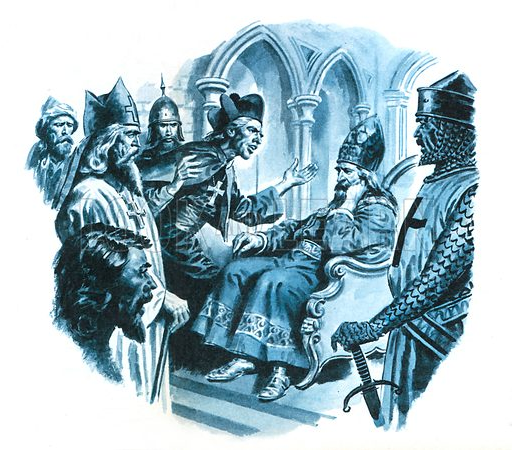
The news of the success of the Priest-King opened a door of hope to the desponding Christian world. Pope Alexander III determined at once to effect a union with this mysterious personage, and on the 27th of September, 1177, wrote him a letter, which he intrusted to his physician, Philip, to deliver in person.
Philip started on his embassy, but never returned. The conquests of Tschengis-Khan again attracted the eyes of Christian Europe to the East. The Mongol hordes were rushing in upon the west with devastating ferocity; Russia, Poland, Hungary, and the eastern provinces of Germany, had succumbed, or suffered grievously; and the fears of other nations were roused lest they too should taste the misery of a Mongolian invasion. It was Gog and Magog come to slaughter, and the times of Antichrist were dawning. But the battle of Liegnitz stayed them in their onward career, and Europe was saved.
Pope Innocent IV determined to convert these wild hordes of barbarians, and subject them to the cross of Christ; he therefore sent among them a number of Dominican and Franciscan missioners, and embassies of peace passed between the Pope, the King of France, and the Mogul Khan.
The result of these communications with the East was, that the travellers learned how false were the prevalent notions of a mighty Christian empire existing in Central Asia. Vulgar superstition or conviction is not, however, to be upset by evidence, and the locality of the monarchy was merely transferred by the people to Africa, and they fixed upon Abyssinia, with a show of truth, as the seat of the famous Priest-King. However, still some doubted. John de Plano Carpini and Marco Polo, though they acknowledged the existence of a Christian monarch in Abyssinia, yet stoutly maintained as well that the Prester John of popular belief reigned in splendor somewhere in the dim Orient.
But before proceeding with the history of this strange fable, it will be well to extract the different accounts given of the Priest-King and his realm by early writers; and we shall then be better able to judge of the influence the myth obtained in Europe.
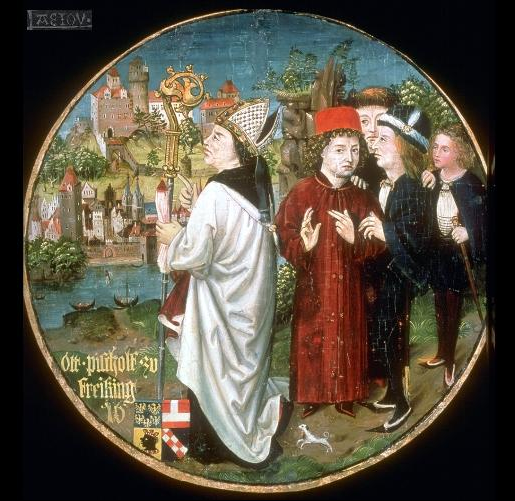
Otto of Freisingen is the first author to mention the monarchy of Prester John with whom we are acquainted. Otto wrote a chronicle up to the date 1156, and he relates that in 1145 the Catholic Bishop of Cabala visited Europe to lay certain complaints before the Pope. He mentioned the fall of Edessa, and also “he stated that a few years ago a certain King and Priest called John, who lives on the farther side of Persia and Armenia, in the remote East, and who, with all his people, were Christians, though belonging to the Nestorian Church, had overcome the royal brothers Samiardi, kings of the Medes and Persians, and had captured Ecbatana, their capital and residence. The said kings had met with their Persian, Median, and Assyrian troops, and had fought for three consecutive days, each side having determined to die rather than take to flight. Prester John, for so they are wont to call him, at length routed the Persians, and after a bloody battle, remained victorious. After which victory the said John was hastening to the assistance of the Church at Jerusalem, but his host, on reaching the Tigris, was hindered from passing, through a deficiency in boats, and he directed his march North, since he had heard that the river was there covered with ice. In that place he had waited many years, expecting severe cold; but the winters having proved unpropitious, and the severity of the climate having carried off many soldiers, he had been forced to retreat to his own land. This king belongs to the family of the Magi, mentioned in the Gospel, and he rules over the very people formerly governed by the Magi; moreover, his fame and his wealth are so great, that he uses an emerald sceptre only.
“Excited by the example of his ancestors, who came to worship Christ in his cradle, he had proposed to go to Jerusalem, but had been impeded by the above-mentioned causes.”
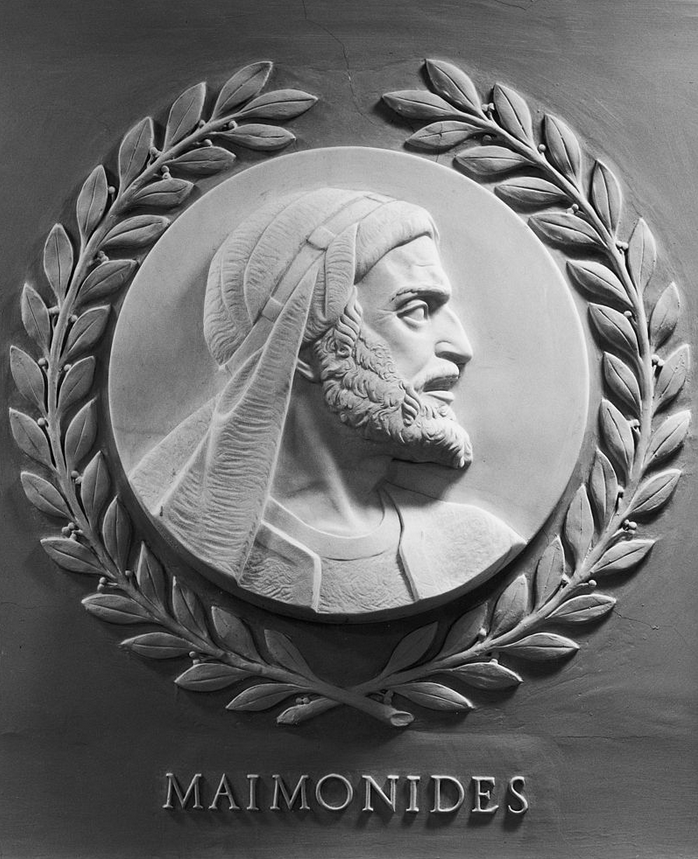
At the same time the story crops up in other quarters; so that we cannot look upon Otto as the inventor of the myth. The celebrated Maimonides alludes to it in a passage quoted by Joshua Lorki, a Jewish physician to Benedict XIII. Maimonides lived from 1135 to 1204. The passage is as follows: “It is evident both from the letters of Rambam (Maimonides), whose memory be blessed, and from the narration of merchants who have visited the ends of the earth, that at this time the root of our faith is to be found in the lands of Babel and Teman, where long ago Jerusalem was an exile; not reckoning those who live in the land of Paras and Madai, of the exiles of Schomrom, the number of which people is as the sand: of these some are still under the yoke of Paras, who is called the Great-Chief Sultan by the Arabs; others live in a place under the yoke of a strange people … governed by a Christian chief, Preste-Cuan by name. With him they have made a compact, and he with them; and this is a matter concerning which there can be no manner of doubt.”
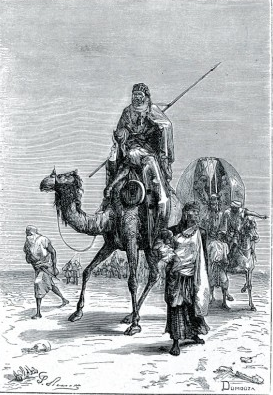
Benjamin of Tudela, another Jew, travelled in the East between the years 1159 and 1173, the last being the date of his death. He wrote an account of his travels, and gives in it some information with regard to a mythical Jew king, who reigned in the utmost splendor over a realm inhabited by Jews alone, situate somewhere in the midst of a desert of vast extent. About this period there appeared a document which produced intense excitement throughout Europe—a letter, yes! a letter from the mysterious personage himself to Manuel Comnenus, Emperor of Constantinople (1143-1180). The exact date of this extraordinary epistle cannot be fixed with any certainty, but it certainly appeared before 1241, the date of the conclusion of the chronicle of Albericus Trium Fontium. This Albericus relates that in the year 1165 “Presbyter Joannes, the Indian king, sent his wonderful letter to various Christian princes, and especially to Manuel of Constantinople, and Frederic the Roman Emperor.” Similar letters were sent to Alexander III., to Louis VII. of France, and to the King of Portugal, which are alluded to in chronicles and romances, and which were indeed turned into rhyme, and sung all over Europe by minstrels and trouvères. The letter is as follows:—
“John, Priest by the Almighty power of God and the Might of our Lord Jesus Christ, King of Kings, and Lord of Lords, to his friend Emanuel, Prince of Constantinople, greeting, wishing him health, prosperity, and the continuance of Divine favor.
“Our Majesty has been informed that you hold our Excellency in love, and that the report of our greatness has reached you. Moreover, we have heard through our treasurer that you have been pleased to send to us some objects of art and interest, that our Exaltedness might be gratified thereby.
“Being human, I receive it in good part, and we have ordered our treasurer to send you some of our articles in return.
“Now we desire to be made certain that you hold the right faith, and in all things cleave to Jesus Christ, our Lord, for we have heard that your court regard you as a god, though we know that you are mortal, and subject to human infirmities…. Should you desire to learn the greatness and excellency of our Exaltedness and of the land subject to our sceptre, then hear and believe:—I, Presbyter Johannes, the Lord of Lords, surpass all under heaven in virtue, in riches, and in power; seventy-two kings pay us tribute…. In the three Indies our Magnificence rules, and our land extends beyond India, where rests the body of the holy Apostle Thomas; it reaches towards the sunrise over the wastes, and it trends towards deserted Babylon near the tower of Babel. Seventy-two provinces, of which only a few are Christian, serve us. Each has its own king, but all are tributary to us.
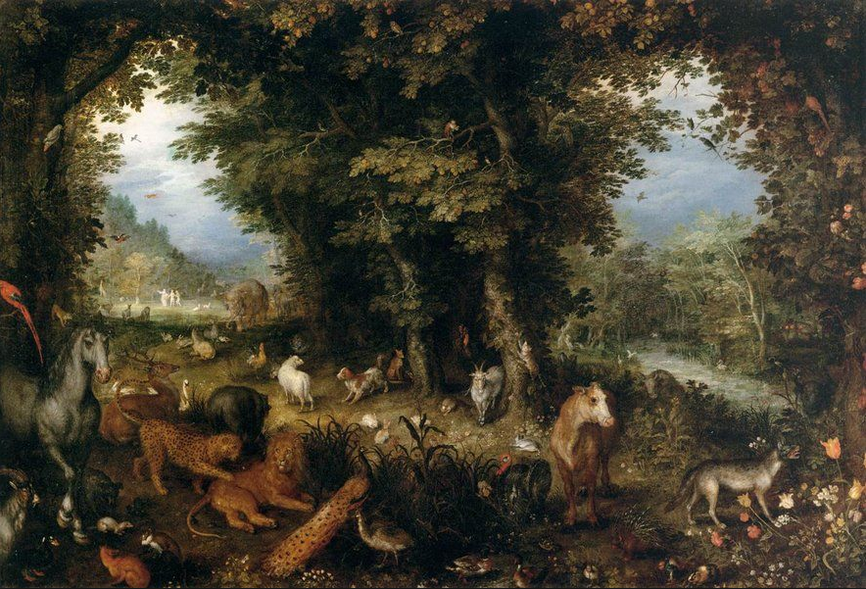
“Our land is the home of elephants, dromedaries, camels, crocodiles, meta-collinarum, cametennus, tensevetes, wild asses, white and red lions, white bears, white merules, crickets, griffins, tigers, lamias, hyenas, wild horses, wild oxen and wild men, men with horns, one-eyed, men with eyes before and behind, centaurs, fauns, satyrs, pygmies, forty-ell-high giants, Cyclopses, and similar women; it is the home, too, of the phœnix, and of nearly all living animals. We have some people subject to us who feed on the flesh of men and of prematurely born animals, and who never fear death. When any of these people die, their friends and relations eat him ravenously, for they regard it as a main duty to munch human flesh. Their names are Gog and Magog, Anie, Agit, Azenach, Fommeperi, Befari, Conei-Samante, Agrimandri, Vintefolei, Casbei, Alanei. These and similar nations were shut in behind lofty mountains by Alexander the Great, towards the North. We lead them at our pleasure against our foes, and neither man nor beast is left undevoured, if our Majesty gives the requisite permission. And when all our foes are eaten, then we return with our hosts home again. These accursed fifteen nations will burst forth from the four quarters of the earth at the end of the world, in the times of Antichrist, and overrun all the abodes of the Saints as well as the great city Rome, which, by the way, we are prepared to give to our son who will be born, along with all Italy, Germany, the two Gauls, Britain and Scotland. We shall also give him Spain and all the land as far as the icy sea. The nations to which I have alluded, according to the words of the prophet, shall not stand in the judgment, on account of their offensive practices, but will be consumed to ashes by a fire which will fall on them from heaven.
“Our land streams with honey, and is overflowing with milk. In one region grows no poisonous herb, nor does a querulous frog ever quack in it; no scorpion exists, nor does the serpent glide amongst the grass, nor can any poisonous animals exist in it, or injure any one.
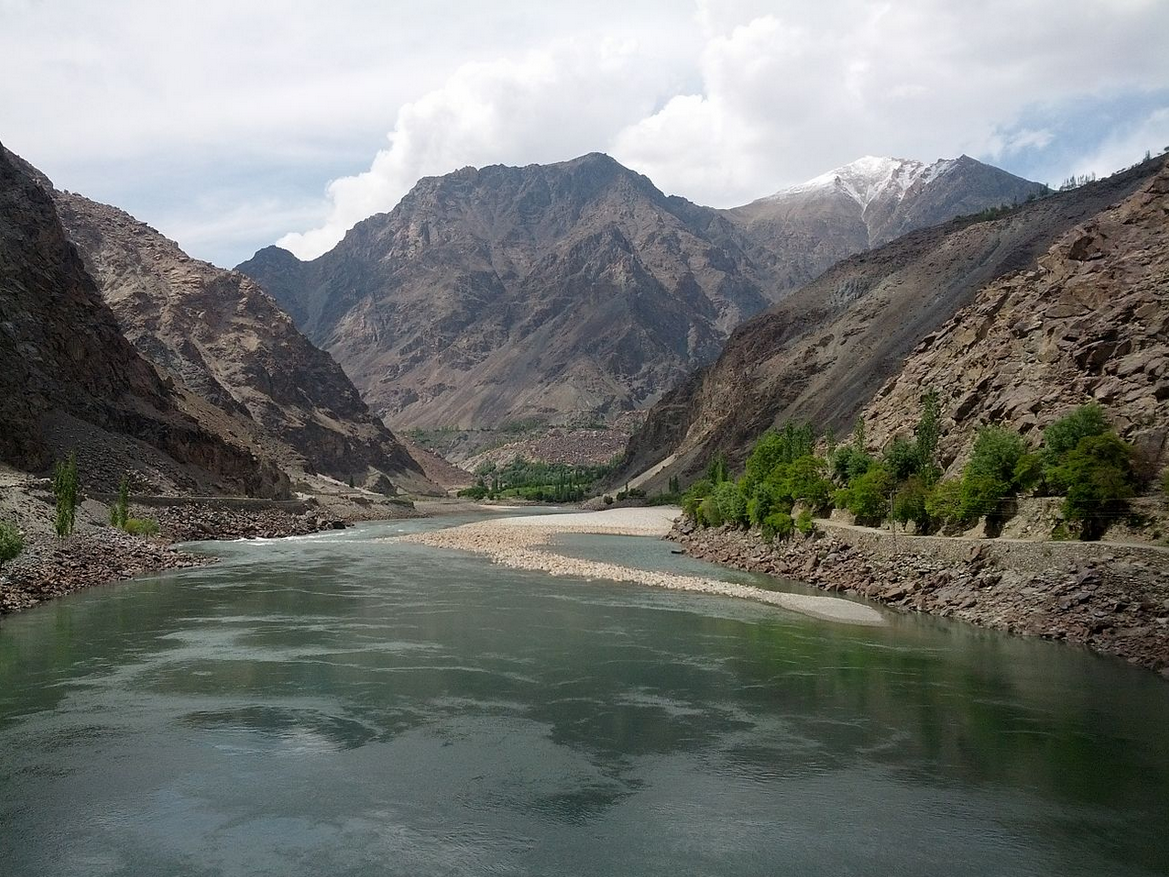
“Among the heathen, flows through a certain province the River Indus; encircling Paradise, it spreads its arms in manifold windings through the entire province. Here are found the emeralds, sapphires, carbuncles, topazes, chrysolites, onyxes, beryls, sardius, and other costly stones. Here grows the plant Assidos, which, when worn by any one, protects him from the evil spirit, forcing it to state its business and name; consequently the foul spirits keep out of the way there. In a certain land subject to us, all kinds of pepper is gathered, and is exchanged for corn and bread, leather and cloth…. At the foot of Mount Olympus bubbles up a spring which changes its flavor hour by hour, night and day, and the spring is scarcely three days’ journey from Paradise, out of which Adam was driven. If any one has tasted thrice of the fountain, from that day he will feel no fatigue, but will, as long as he lives, be as a man of thirty years. Here are found the small stones called Nudiosi, which, if borne about the body, prevent the sight from waxing feeble, and restore it where it is lost. The more the stone is looked at, the keener becomes the sight. In our territory is a certain waterless sea, consisting of tumbling billows of sand never at rest. None have crossed this sea; it lacks water altogether, yet fish are cast up upon the beach of various kinds, very tasty, and the like are nowhere else to be seen. Three days’ journey from this sea are mountains from which rolls down a stony, waterless river, which opens into the sandy sea. As soon as the stream reaches the sea, its stones vanish in it, and are never seen again. As long as the river is in motion, it cannot be crossed; only four days a week is it possible to traverse it. Between the sandy sea and the said mountains, in a certain plain is a fountain of singular virtue, which purges Christians and would-be Christians from all transgressions. The water stands four inches high in a hollow stone shaped like a mussel-shell. Two saintly old men watch by it, and ask the comers whether they are Christians, or are about to become Christians, then whether they desire healing with all their hearts. If they have answered well, they are bidden to lay aside their clothes, and to step into the mussel. If what they said be true, then the water begins to rise and gush over their heads; thrice does the water thus lift itself, and every one who has entered the mussel leaves it cured of every complaint.
“Near the wilderness trickles between barren mountains a subterranean rill, which can only by chance be reached, for only occasionally the earth gapes, and he who would descend must do it with precipitation, ere the earth closes again. All that is gathered under the ground there is gem and precious stone. The brook pours into another river, and the inhabitants of the neighborhood obtain thence abundance of precious stones. Yet they never venture to sell them without having first offered them to us for our private use: should we decline them, they are at liberty to dispose of them to strangers. Boys there are trained to remain three or four days under water, diving after the stones.
“Beyond the stone river are the ten tribes of the Jews, which, though subject to their own kings, are, for all that, our slaves and tributary to our Majesty. In one of our lands, hight Zone, are worms called in our tongue Salamanders. These worms can only live in fire, and they build cocoons like silk-worms, which are unwound by the ladies of our palace, and spun into cloth and dresses, which are worn by our Exaltedness. These dresses, in order to be cleaned and washed, are cast into flames…. When we go to war, we have fourteen golden and bejewelled crosses borne before us instead of banners; each of these crosses is followed by 10,000 horsemen, and 100,000 foot soldiers fully armed, without reckoning those in charge of the luggage and provision.
“When we ride abroad plainly, we have a wooden, unadorned cross, without gold or gem about it, borne before us, in order that we may meditate on the sufferings of Our Lord Jesus Christ; also a golden bowl filled with earth, to remind us of that whence we sprung, and that to which we must return; but besides these there is borne a silver bowl full of gold, as a token to all that we are the Lord of Lords.
“All riches, such as are upon the world, our Magnificence possesses in superabundance. With us no one lies, for he who speaks a lie is thenceforth regarded as dead; he is no more thought of, or honored by us. No vice is tolerated by us. Every year we undertake a pilgrimage, with retinue of war, to the body of the holy prophet Daniel, which is near the desolated site of Babylon. In our realm fishes are caught, the blood of which dyes purple. The Amazons and the Brahmins are subject to us. The palace in which our Supereminency resides, is built after the pattern of the castle built by the Apostle Thomas for the Indian king Gundoforus. Ceilings, joists, and architrave are of Sethym wood, the roof of ebony, which can never catch fire. Over the gable of the palace are, at the extremities, two golden apples, in each of which are two carbuncles, so that the gold may shine by day, and the carbuncles by night. The greater gates of the palace are of sardius, with the horn of the horned snake inwrought, so that no one can bring poison within.
“The other portals are of ebony. The windows are of crystal; the tables are partly of gold, partly of amethyst, and the columns supporting the tables are partly of ivory, partly of amethyst. The court in which we watch the jousting is floored with onyx in order to increase the courage of the combatants. In the palace, at night, nothing is burned for light but wicks supplied with balsam…. Before our palace stands a mirror, the ascent to which consists of five and twenty steps of porphyry and serpentine.” After a description of the gems adorning this mirror, which is guarded night and day by three thousand armed men, he explains its use: “We look therein and behold all that is taking place in every province and region subject to our sceptre.
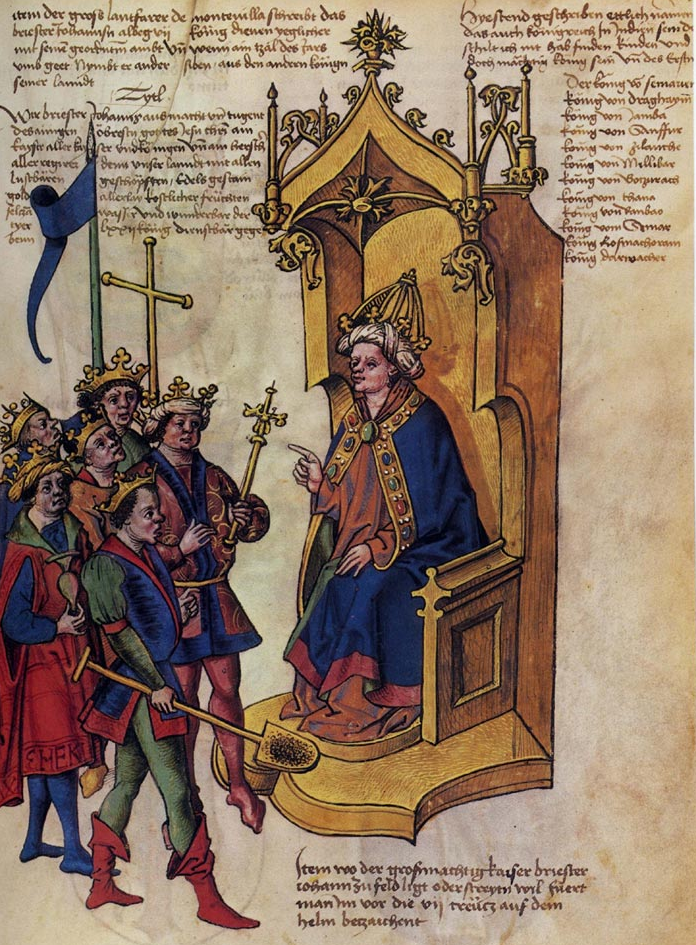
“Seven kings wait upon us monthly, in turn, with sixty-two dukes, two hundred and fifty-six counts and marquises: and twelve archbishops sit at table with us on our right, and twenty bishops on the left, besides the patriarch of St. Thomas, the Sarmatian Protopope, and the Archpope of Susa…. Our lord high steward is a primate and king, our cup-bearer is an archbishop and king, our chamberlain a bishop and king, our marshal a king and abbot.”
I may be spared further extracts from this extraordinary letter, which proceeds to describe the church in which Prester John worships, by enumerating the precious stones of which it is constructed, and their special virtues.
Whether this letter was in circulation before Pope Alexander wrote his, it is not easy to decide. Alexander does not allude to it, but speaks of the reports which have reached him of the piety and the magnificence of the Priest-King. At the same time, there runs a tone of bitterness through the letter, as though the Pope had been galled at the pretensions of this mysterious personage, and perhaps winced under the prospect of the man-eaters overrunning Italy, as suggested by John the Priest. The papal epistle is an assertion of the claims of the See of Rome to universal dominion, and it assures the Eastern Prince-Pope that his Christian professions are worthless, unless he submits to the successor of Peter. “Not every one that saith unto me, Lord, Lord,” &c., quotes the Pope, and then explains that the will of God is that every monarch and prelate should eat humble pie to the Sovereign Pontiff.
Sir John Maundevil gives the origin of the priestly title of the Eastern despot, in his curious book of travels.
“So it befelle, that this emperour cam, with a Cristene knyght with him, into a chirche in Egypt: and it was Saterday in Wyttson woke. And the bishop made orders. And he beheld and listened the servyse fulle tentyfly: and he asked the Cristene knyght, what men of degree thei scholden ben, that the prelate had before him. And the knyght answerede and seyde, that thei scholde ben prestes. And then the emperour seyde, that he wolde no longer ben clept kyng ne emperour, but preest: and that he wolde have the name of the first preest, that wente out of the chirche; and his name was John. And so evere more sittiens, he is clept Prestre John.”
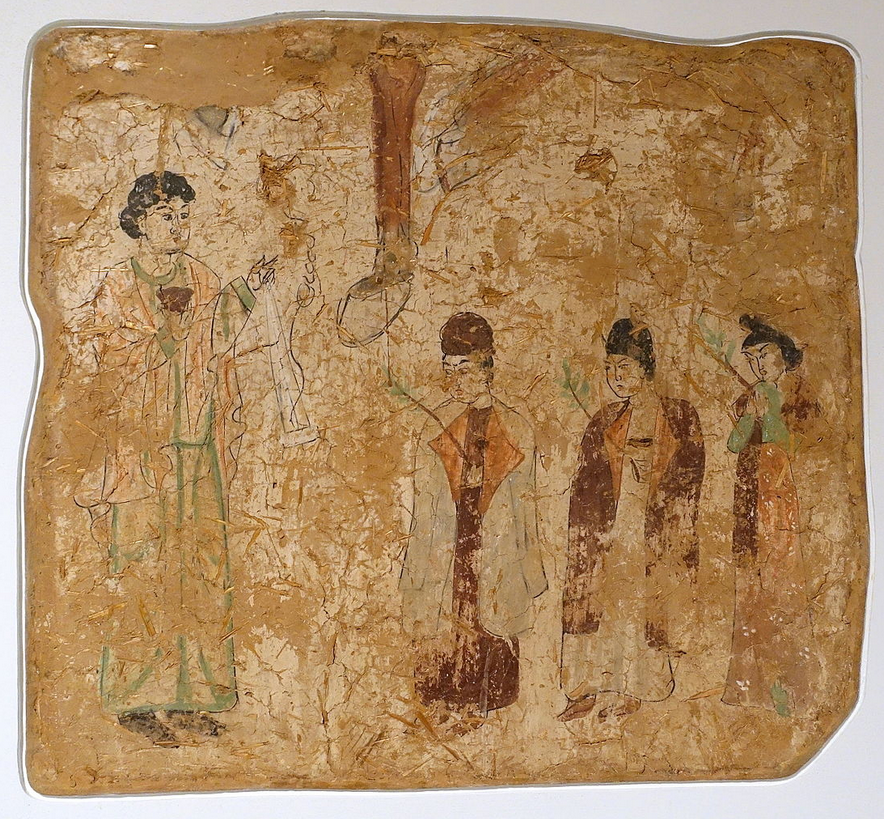
It is probable that the foundation of the whole Prester-John myth lay in the report which reached Europe of the wonderful successes of Nestorianism in the East, and there seems reason to believe that the famous letter given above was a Nestorian fabrication. It certainly looks un-European; the gorgeous imagery is thoroughly Eastern, and the disparaging tone in which Rome is spoken of could hardly have been the expression of Western feelings. The letter has the object in view of exalting the East in religion and arts to an undue eminence at the expense of the West, and it manifests some ignorance of European geography, when it speaks of the land extending from Spain to the Polar Sea. Moreover, the sites of the patriarchates, and the dignity conferred on that of St. Thomas, are indications of a Nestorian bias.
A brief glance at the history of this heretical Church may be of value here, as showing that there really was a foundation for the wild legends concerning a Christian empire in the East, so prevalent in Europe. Nestorius, a priest of Antioch and a disciple of St. Chrysostom, was elevated by the emperor to the patriarchate of Constantinople, and in the year 428 began to propagate his heresy, denying the hypostatic union. The Council of Ephesus denounced him, and, in spite of the emperor and court, Nestorius was anathematized and driven into exile. His sect spread through the East, and became a flourishing church. It reached to China, where the emperor was all but converted; its missionaries traversed the frozen tundras of Siberia, preaching their maimed Gospel to the wild hordes which haunted those dreary wastes; it faced Buddhism, and wrestled with it for the religious supremacy in Thibet; it established churches in Persia and in Bokhara; it penetrated India; it formed colonies in Ceylon, in Siam, and in Sumatra; so that the Catholicos or Pope of Bagdad exercised sway more extensive than that ever obtained by the successor of St. Peter. The number of Christians belonging to that communion probably exceeded that of the members of the true Catholic Church in East and West. But the Nestorian Church was not founded on the Rock; it rested on Nestorius; and when the rain descended, and the winds blew, and the floods came, and beat upon that house, it fell, leaving scarce a fragment behind.
Rubruquis the Franciscan, who in 1253 was sent on a mission into Tartary, was the first to let in a little light on the fable. He writes, “The Catai dwelt beyond certain mountains across which I wandered, and in a plain in the midst of the mountains lived once an important Nestorian shepherd, who ruled over the Nestorian people, called Nayman. When Coir-Khan died, the Nestorian people raised this man to be king, and called him King Johannes, and related of him ten times as much as the truth. The Nestorians thereabouts have this way with them, that about nothing they make a great fuss, and thus they have got it noised abroad that Sartach, Mangu-Khan, and Ken-Khan were Christians, simply because they treated Christians well, and showed them more honor than other people. Yet, in fact, they were not Christians at all. And in like manner the story got about that there was a great King John. However, I traversed his pastures, and no one knew anything about him, except a few Nestorians. In his pastures lives Ken-Khan, at whose court was Brother Andrew, whom I met on my way back. This Johannes had a brother, a famous shepherd, named Unc, who lived three weeks’ journey beyond the mountains of Caracatais.”
This Unk-Khan was a real individual; he lost his life in the year 1203. Kuschhik, prince of the Nayman, and follower of Kor-Khan, fell in 1218.
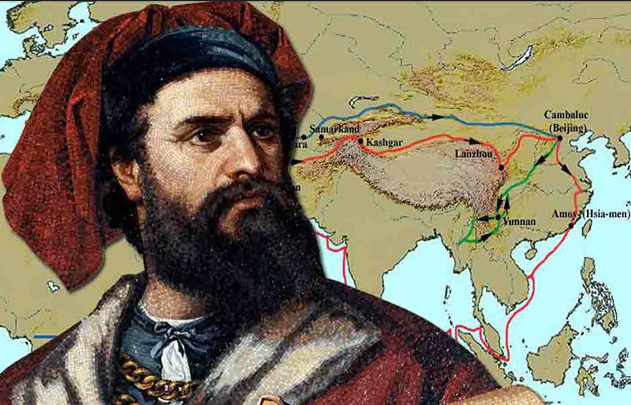
Marco Polo, the Venetian traveller (1254-1324), identifies Unk-Khan with Prester John; he says, “I will now tell you of the deeds of the Tartars, how they gained the mastery, and spread over the whole earth. The Tartars dwelt between Georgia and Bargu, where there is a vast plain and level country, on which are neither cities nor forts, but capital pasturage and water. They had no chief of their own, but paid to Prester Johannes tribute. Of the greatness of this Prester Johannes, who was properly called Un-Khan, the whole world spake; the Tartars gave him one of every ten head of cattle. When Prester John noticed that they were increasing, he feared them, and planned how he could injure them. He determined therefore to scatter them, and he sent barons to do this. But the Tartars guessed what Prester John purposed … and they went away into the wide wastes of the North, where they might be beyond his reach.” He then goes on to relate how Tschengis-(Jenghiz-)Khan became the head of the Tartars, and how he fought against Prester John, and, after a desperate fight, overcame and slew him.
The Syriac Chronicle of the Jacobite Primate, Gregory Bar-Hebræus (born 1226, died 1286), also identifies Unk-Khan with Prester John. “In the year of the Greeks 1514, of the Arabs 599 (A. D. 1202), when Unk-Khan, who is the Christian King John, ruled over a stock of the barbarian Hunns, called Kergt, Tschingys-Khan served him with great zeal. When John observed the superiority and serviceableness of the other, he envied him, and plotted to seize and murder him. But two sons of Unk-Khan, having heard this, told it to Tschingys; whereupon he and his comrades fled by night, and secreted themselves. Next morning Unk-Khan took possession of the Tartar tents, but found them empty. Then the party of Tschingys fell upon him, and they met by the spring called Balschunah, and the side of Tschingys won the day; and the followers of Unk-Khan were compelled to yield. They met again several times, till Unk-Khan was utterly discomfited, and was slain himself, and his wives, sons, and daughters carried into captivity. Yet we must consider that King John the Kergtajer was not cast down for nought; nay, rather, because he had turned his heart from the fear of Christ his Lord, who had exalted him, and had taken a wife of the Zinish nation, called Quarakhata. Because he forsook the religion of his ancestors and followed strange gods, therefore God took the government from him, and gave it to one better than he, and whose heart was right before God.”
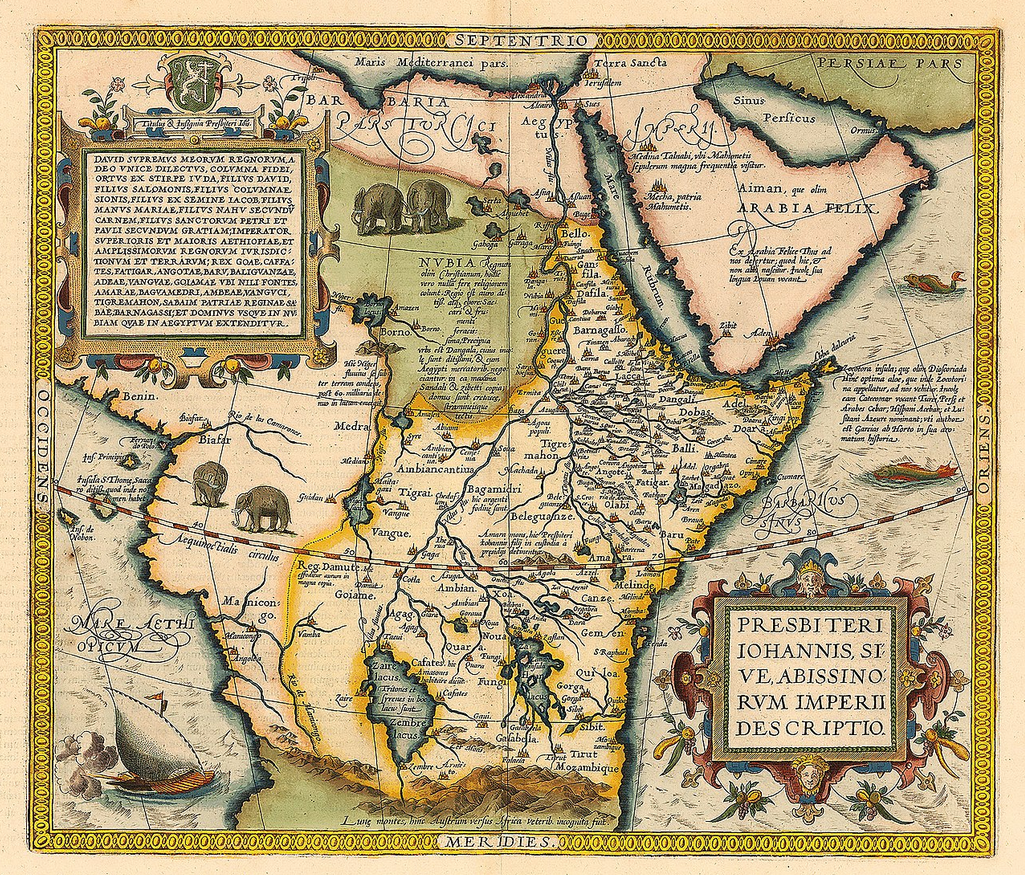
Some of the early travellers, such as John de Plano Carpini and Marco Polo, in disabusing the popular mind of the belief in Prester John as a mighty Asiatic Christian monarch, unintentionally turned the popular faith in that individual into a new direction. They spoke of the black people of Abascia in Ethiopia, which, by the way, they called Middle India, as a great people subject to a Christian monarch.
Marco Polo says that the true monarch of Abyssinia is Christ; but that it is governed by six kings, three of whom are Christians and three Saracens, and that they are in league with the Soudan of Aden.
Bishop Jordanus, in his description of the world, accordingly sets down Abyssinia as the kingdom of Prester John; and such was the popular impression, which was confirmed by the appearance at intervals of ambassadors at European courts from the King of Abyssinia. The discovery of the Cape of Good Hope was due partly to a desire manifested in Portugal to open communications with this monarch, and King John II sent two men learned in Oriental languages through Egypt to the court of Abyssinia. The might and dominion of this prince, who had replaced the Tartar chief in the popular creed as Prester John, was of course greatly exaggerated, and was supposed to extend across Arabia and Asia to the wall of China. The spread of geographical knowledge has contracted the area of his dominions, and a critical acquaintance with history has exploded the myth which invested Unk-Khan, the nomad chief, with all the attributes of a demigod, uniting in one the utmost pretensions of a Pope and the proudest claims of a monarch.

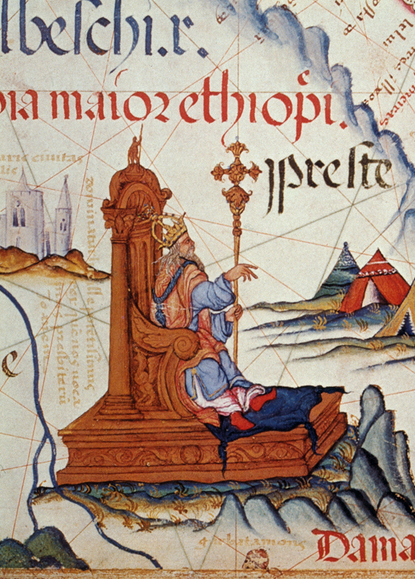








4.5